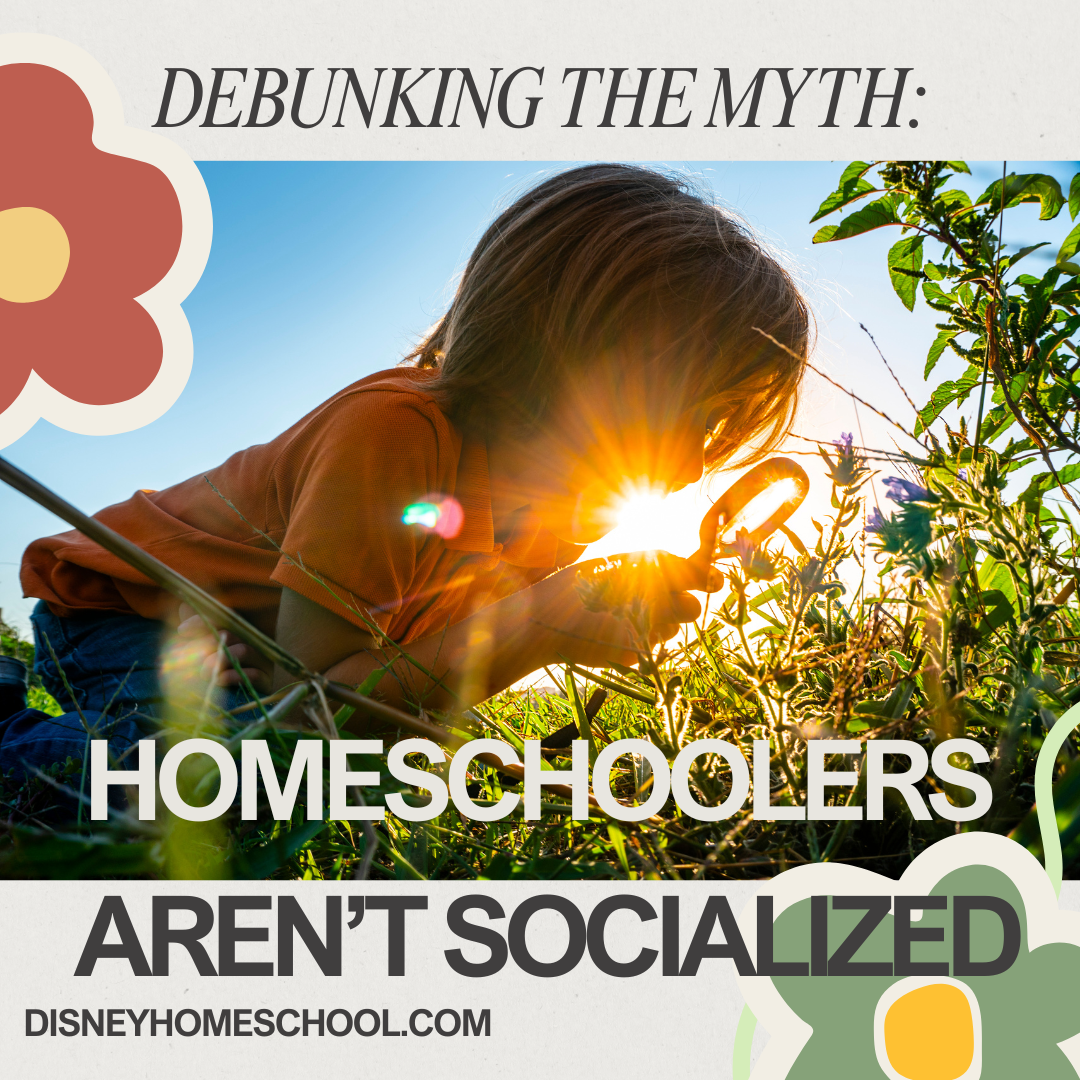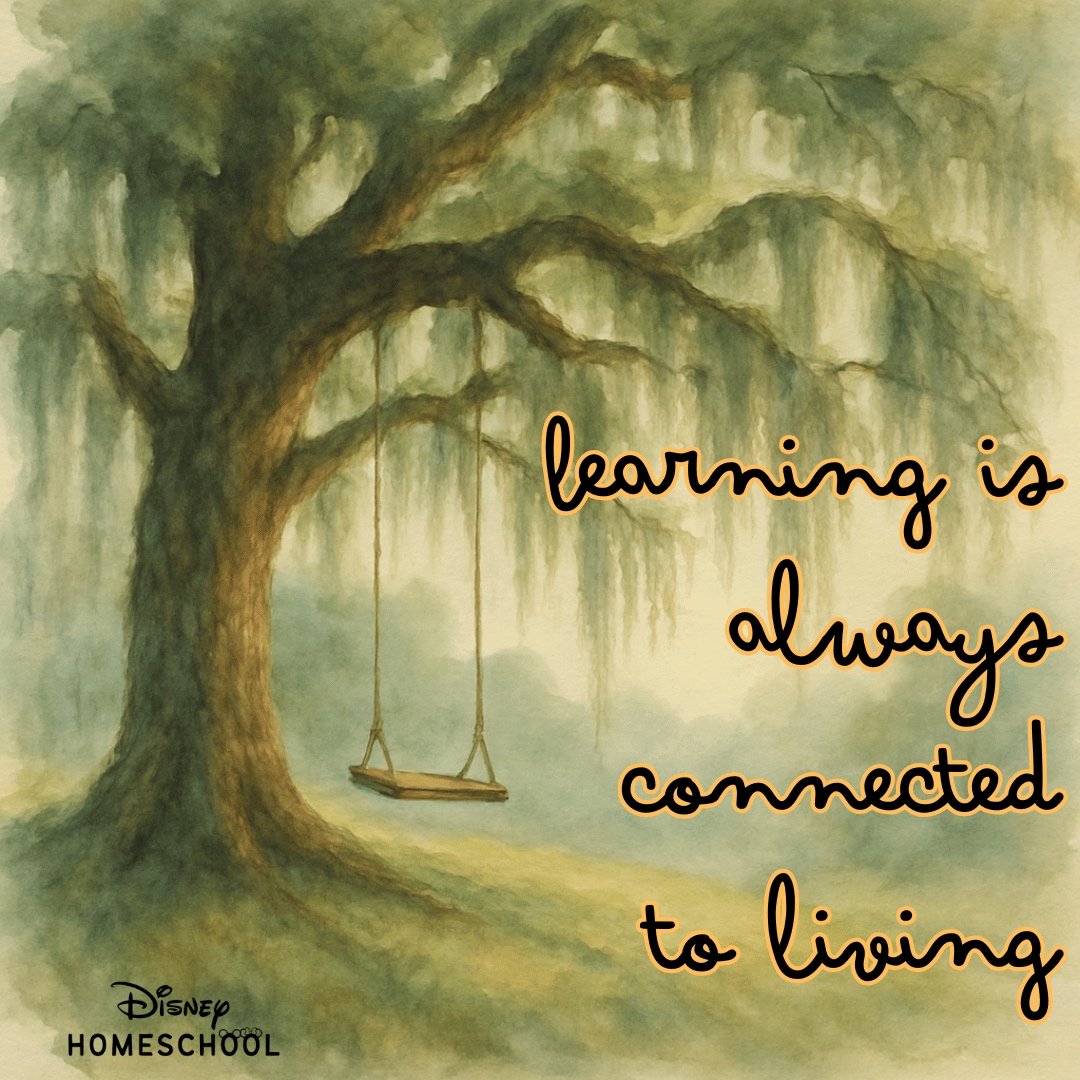The Myth That Homeschoolers Aren’t Socialized
One of the most persistent myths about homeschooling is that children who learn outside of traditional schools lack proper socialization. It’s a concern that comes up often, especially when families consider homeschooling an only child or choosing to educate through more flexible, experiential environments (like Walt Disney World).
The assumption behind this myth is that learning MUST happen in large groups, in structured classrooms, and that children only learn to communicate, collaborate, and build relationships through age-grouped classrooms and recess.
But this view is narrow and outdated.
As an educator, parent, and curriculum designer, I approach social development the same way I approach academics: intentionally, thoughtfully, and with the long view in mind. Learning to interact with others is not a byproduct of proximity. It is a skill that can be cultivated through meaningful, real-world experiences… and in fact, should be.
What Is Socialization, Really?
Socialization is not simply “being around other children.” It is learning how to:
Engage in conversations with a variety of people
Read social cues and respond with empathy
Communicate needs clearly and respectfully
Work together to solve problems
Navigate conflict and compromise
These are not skills reserved for the classroom. In fact, they often emerge more naturally (and more sincerely) in environments that are flexible, relationship-rich, and connected to the real world.
What Socialization Looks Like in a Homeschool
When people hear that I design curriculum for families to use at Disney parks, they sometimes imagine something solitary or surface-level… just kids doing worksheets on a bench while everyone else rides Space Mountain (to be fair, and this is a bit of an unpopular opinion… we aren’t Space Mountain fans, but we DO love the vibe of Tomorrowland and will absolutely sit on a bench and people watch).
The reality of homeschooling in public spaces is much richer.
In the Ultimate EPCOT Workbook, for example, students learn cultural history and languages around the world. They are encouraged to share those new phrases with Cast Members from around the world, learning to initiate conversations, practice active listening, and engage with people from different backgrounds.
In the Hollywood Studios Theater Unit, students analyze dialogue and story arcs, then practice rewriting scenes and performing them aloud. These kinds of activities encourage not just comprehension, but communication, expression, and collaboration. Furthermore, when understanding theatrics and any kind of writing in general, you must first understand your audience. What better way to understand an audience than to metacognitively comprehend that you are surrounded by the audience?
When used in the parks, this curriculum doesn't isolate students. It immerses them.
Intentional Interaction vs. Passive Proximity
In traditional schools, students are often grouped by age, move through a standardized schedule, and may have limited opportunities for authentic interaction. While friendships can and do form in those environments, it’s a mistake to equate attendance with social development.
In contrast, homeschooled students (especially those engaged in real-world learning) practice social skills across a range of contexts:
Speaking with adults in museums, parks, and shops
Working on group projects in co-ops or local clubs
Asking questions during guided tours
Collaborating with siblings or friends during creative assignments
Navigating unstructured play and spontaneous conversation
These aren’t forced interactions. They are genuine, responsive, and relevant. They reflect the kinds of communication required in adulthood, something that every homeschool family I know values deeply.
A Flexible Model for Real Human Development
In our homeschool, we are out in the world nearly every day. That may look like an afternoon at the science museum, an early morning walk before writing, or a full day immersed in science or culture at EPCOT. It varies by week, and it flexes with our needs.
But what remains consistent is that learning is always connected to living. Socialization is part of the milieu of every experience… not a separate subject, but an outcome of engaging meaningfully with people and places.
Final Thought
The myth that homeschoolers lack socialization stems from an outdated model of education: one that equates conformity and containment with readiness.
But today’s homeschoolers, especially those learning through experience, are growing up in an environment where communication is practiced with intention, reflection, and joy. The goal is not to replicate the classroom. It is to prepare for the world.
And when that world includes a little magic, wonder, and storytelling?
All the better.






